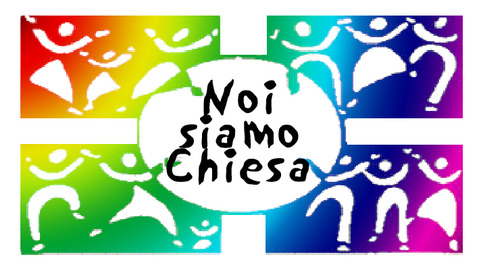Twenty reform groups at the beginning of the Synodal Way:
“Synodal Way needs fundamental change and perspectives”
With this statement of 22 November 2019 twenty church reform groups have once
again publicly expressed their expectations shortly before the official start on 1
December 2019.
Catholic reform groups renewed their demands shortly before the official start
on the first Sunday in Advent, December 1, 2019, that the Synodal Way is to be
designed in a participatory, open-ended and transparent manner and must lead
to concrete and binding decisions.
According to the MHG study, which the German bishops called a caesura a
fundamental change is needed at all levels. In doing so, there must be no
taboos, to think the unusual and decide what is necessary. The common
responsibility of all believers for the direction of our church at this time must
be in the foreground. The Synodal Way should be a process for the whole church,
right into the parishes and also seek to talk to those who stand far away. That the
current church law, e.g. with a reservation of the bishops’ decision sets a narrow
legal framework, must not prevent the overdue debates now in all freedom in
a synodal culture of debate; this is in the awareness that canon law is made by
people and therefore can be changed.
But the Synodal Way also needs new perspectives to show: Another church is
possible. It is about the encouragement that the baptized and confirmed
Christians can live their Christian lives in a reformed church. The letter from
Pope Francis to the pilgrim people of God in Germany of 29 June 2019 speaks of
a turning point in time, “which raises new and old questions in the light of which
a dispute is justified and is necessary”. This letter neither limits nor excludes
topics.
Beyond the four planned forums, the decisive key points of the current crisis
of Church and faith (ecclesial hierarchy, the question of God; Christology, …)
should be addressed. The new “evangelisation” expected by Pope Francis from
the Synodal Way requires translating the message of Jesus into the patterns of
language and thought of today’s world so that people can understand and
embrace it.
There must also be the conversion of those themes so existentially treated by
Francis such as flight and migration, economic form and climate change. Thus the
Synodal Way is not a solo effort by the Church in Germany, but can at best –
just like the PanAmazonian Synod – be a guiding light for the universal church.
Therefore it is important that the essential steps and working methods of this
process are also communicated internationally.
It is important to remember: The starting point for the Synodal Way is the
necessary examination of the systemic risks identified by the MHG study and the
failure to protect children and youths in the church. Therefore also those directly
involved must be included. The themes of the four forums of the Synodal Way
also correspond exactly to the points of the ZdK paper “Dialog instead of refusing
dialogue” (1994) and the petition by We Are Church in 1995 on the occasion of
the abuse scandal of the Vienna Cardinal Groër.
Under the aspect of a Go-To-Church and the question what people need today
and what is in accordance with the Gospel, it will be of great importance for the
work of the Synodal Way that the following points are considered central:
1) The unity of the Church will not be damaged by contemporary progress and
theological doctrinal development, but above all by those who resist all
change.
The question of how power is handled in the church cannot be answered
without a critical examination of clericalism nor without tackling the
question of the role of women in the church.
2) Insisting on compulsory celibacy must no longer lead to more and more
congregations are denied the Eucharistic celebration.
3) For the future of the Church, it will be necessary to allow access for women
to all church offices, because the exclusion of ordination cannot be justified
theologically.
4) With regard to the topic of sexuality affecting all human beings the Synodal
Way start from a positive, appreciative attitude to the different ways of life
and a consensual sexuality.
The reform groups support the petition “#Amazonia also with us!” to the
German-speaking church leaders and see the binding Synodal Way as a
compelling opportunity to overcome the existential crisis of the Roman Catholic
Church, which exists is not only in Germany.
To the participants of the Synodal Assembly the reform groups address once
again this appeal: Be courageous, now, so that we as a faith community can
continue to bear witness to Jesus in the future with credibility and joy! The
people of God want to see reform acts at last, and to hear no more wait-and-see
announcements.
Signatory reform groups:
KirchenVolksBewegung We Are Church with the project groups Action” Lila
Stola” and Women’s Dignity
Action “Maria 2.0″
AGR Rottenburg-Stuttgart (Action group of 160 pastors and deacons in the
Diocese of Rottenburg-Stuttgart)
Freckenhorster District
Community Initiative.org
Initiative group of women affected by celibacy
Institute for Theology and politics
Lay responsibility Regensburg e.V.
Reader’s Initiative Public Forum e.V.
Münchner Kreis – Initiative of pastoral workers in the archdiocese of Munich-Freising
Münnerstädter Kreis
Ökumenische Working Group Homosexuals and Church (HuK) e.V.
Religious Women for Human Dignity
Pfarrer-Initiative Germany
Priests in dialogue
Pro concilio, editorial imprimatur
Association of catholic priests and their Wives
The “Eckiger Tisch” initiative for supports this call.Web addresses of the signatory reform groups:
www.wir-sind-kirche.de/?id=128&id_entry=7985#REFORMGRUPPEN

Lascia un commento